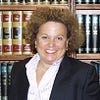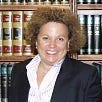What to Expect With the New Federal Communications CommissionWhat to Expect With the New Federal Communications Commission
The author of Project 2025’s chapter on telecom regulation is expected to be named as the FCC head next year. Here’s where he stands on everything from net neutrality to TikTok.
November 26, 2024

It is not a surprise that President-Elect Donald Trump has chosen current FCC Commissioner Brendan Carr to chair the FCC in his administration. Carr has been a sitting—and vocal--commissioner and is the most senior Republican on the FCC, having served in this capacity since 2017. Should he be confirmed, he will come to the role with many years of experience as an attorney practicing before the FCC, then as an aide to former Commissioner Ajit Pai. After a six-month as Pai’s aide, Carr was nominated by the former President Trump and approved by the Senate as an FCC Commissioner in 2018. His nomination was approved for two successive five-year terms in both 2018 and 2023. Carr certainly knows his way around the agency, for better or worse.
Commissioner Carr is the author of Chapter 28 in the widely discussed and controversial Project 2025 plan published by the conservative Heritage Foundation where he advocated several important policy positions. In this chapter, Carr wrote, “The FCC needs to change course and bring new urgency to achieving four main goals: reining in Big Tech; promoting national security; unleashing economic prosperity; and ensuring FCC accountability and good governance.”
Although the comment from Chapter 28 seems somewhat generic and even a bit bland, it is consistent with opinions that the new chair-designee has championed all along. By “reining in big tech,” he's reiterating other public positions he's taken, believing, in particular, that social media companies have disproportionately limited--to the point of censorship--content favoring right-leaning perspectives. With this perspective in mind, Commissioner Carr has indicated that he favors a weakening of existing protections for ISPs from content created by their users. In practice, this affects the interpretation of Section 230 of the Communications Act.
Under the guise of national security, Commissioner Carr has been vocal in his opposition to the use otif Chinese and other foreign-manufactured equipment within domestic networks. Not surprisingly, he is also not a fan of TikTok because, among other reasons, he believes that its Chinese ownership and operation pose a threat to national security. This opinion is in marked contrast to the opinion of the President-Elect. Stay tuned for potential fireworks between them. While there are current restrictions on use of equipment from Huawei and other manufacturers, under Commissioner Carr’s leadership, deployment of such equipment is likely to be further restricted.
It’s hard to discern what Commissioner Carr meant by “unleashing economic prosperity,” but it’s clear that he favors a lighter regulatory hand than has existed under the current administration. What this means for end users and corporate consumers is, among other things, that the battle to restore Net Neutrality is, if not dead, in a very deep sleep. Other pro-consumer rules, regulations and protections are also in jeopardy, both from what will be the Republican-controlled Federal Communication and the Federal Trade Commissions.
The Universal Service Fund (USF) and the existing mechanisms it uses to collect funds to support important programs such as E-Rate, rural health care, and high-cost support among others, in its present form will also be under the microscope. Whether Congress will assume a larger role in collecting and deploying such funds remains to be seen, but it’s fair to assume that the entire USF program, where assessments have been unevenly levied on some providers and not others, based on underlying technologies, is likely to receive some careful attention and likely modification.
Long an advocate for expanded wireless spectrum, Commissioner Carr has advocated for streamlining and simplifying the process necessary for wireless deployment. Industry-watchers anticipate that in his role as FCC Chair, he will seek to loosen regulations across the board making deployment potentially less complex for providers. In addition, he is expected to encourage the use of satellite broadband that would favor services offered by Elon Musk’s Starlink.
Lastly, while Commissioner Carr is the named author of chapter 28 of Project 2025, many of the points that he—and those who worked with him but were not named—has addressed are not issues that are within the purview of the FCC or even federal government. The takeaway is that carriers and providers will likely have more flexibility and fewer regulatory hoops to clear than they have for the past four years. Very lastly, his new boss is known for altering his positions and priorities, so it will be interesting to see how the Commission Chair and his new boss work together to accomplish defined goals in the new administration.
About the Author
You May Also Like





